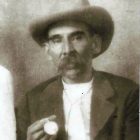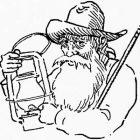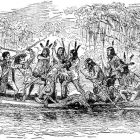What A Melancholy History Is That Of The Red Man! Yes ! tho’ they all have passed away, —
That noble race and brave,
Though their light canoes have vanished
From off the crested wave ;
Though ‘mid the forests where they roved. There rings no hunter’s shout, —
Yet their names are on our waters,
And we may not wash them out
Their memory liveth on our hills,
Their baptism on our shore, —
Our everlasting rivers speak
Their dialect of yore
‘Tis heard where Chattahoochee pours
His yellow tide along ;
It sounds on Tallapoosa’s shores,
And Coosa swells the song ;
Where lordly Alabama sweeps,
The symphony remains ;
And young Cahawba proudly keeps
The echo of its strains ;
Where Tuscaloosa’s waters glide,
From stream and town ’tis heard. And dark Tombeckbee’s winding tide
Eepeats the olden word ;
Afar, where nature brightly wreathed
Fit Edens for the Free,
Along Tuscumbia’s bank ’tis breathed,
By stately Tennessee ;
And south, where from Conecuh’s springs,
Escambia’s waters steal,
The anoient melody still rings,—
From Tensaw and Mobile.





